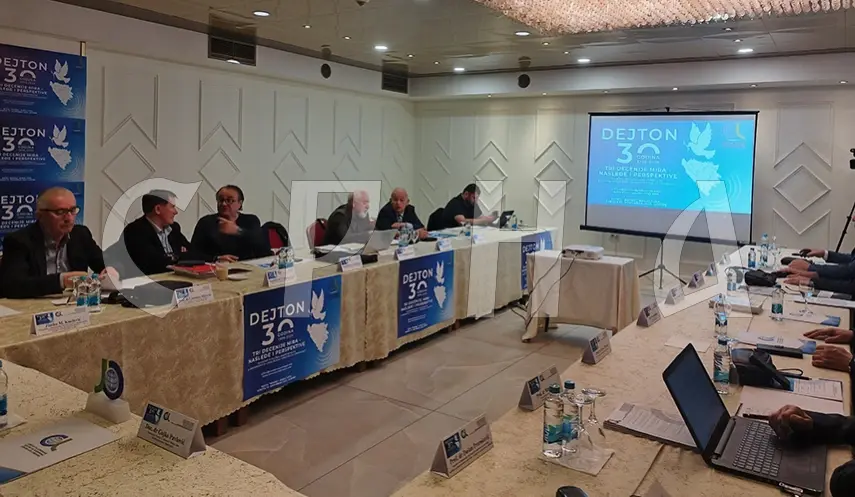CALL TO CLOSE THE OHR IN BiH
Republika Srpska - Banja Luka - scientific-expert conference
11/15/2025
16:18

BANJA LUKA, NOVEMBER 15 /SRNA/ – Dayton Agreement remains the key framework and historical foundation for preserving peace and stability in BiH, the Office of the High Representative (OHR) should be closed, and responsibility must be returned to domestic institutions—these are the conclusions of the expert conference “Dayton 30: Three Decades of Peace – Legacy and Perspectives,” held in Banja Luka.
Participants pointed out that the modalities of international support must be redefined in order to maintain stability and enable faster progress.
For all these reasons, they stressed, the closure of the OHR and the Peace Implementation Council (PIC) represents a logical step toward restoring full sovereignty to BiH, rebuilding trust in its institutions, strengthening independent and democratic governance, and opening and consolidating strategic path of the country toward the EU.
It was clearly stated that the “citizen-based model” for BiH is a poorly disguised politics of a unitarist concept that, in effect, eliminates BiH itself, and that the legacy of Dayton shows the country now requires a new balance between autonomy and shared governance.
Accordingly, it is necessary to halt the long process of undermining the Dayton Agreement—something that did not happen overnight but has been unfolding over many years, one conclusion notes.
The participants highlighted that three decades without war affirm the core mission of the Dayton Peace Accords: stopping the conflict and establishing a minimal consensus on the existence of the state based on two entities and three constituent peoples.
They noted that EU integration represents the most important framework for future changes and reforms, and that the process of moving closer to the EU must become an instrument of internal transformation.
In this regard, particular emphasis was placed on strengthening the rule of law, institutional accountability, and a political culture of compromise, and ultimately, returning decision-making to the hands of the legitimate representatives of the peoples and institutions.
The conclusions underscore that reforms must result from internal agreement, not external imposition, and that Brussels must restore objectivity and apply an equal approach toward all the Balkan states.
It was also noted that continued regional cooperation and reconciliation remain key prerequisites for lasting security, and that rebuilding cooperation and trust among peoples is essential.
In this context, Dayton is highlighted as a foundation for the stability of the broader Balkan region, where the interests of major powers—the USA, EU, Russia, China, and Turkiye—intersect.
The key outlook for the coming decades, the conclusions say, is the transition from a merely formal peace to a substantive one. Sustainable peace requires the integration of democratic values, social justice, economic development, and preventing demographic collapse as the basis of political stability and societal resilience.
The conference concluded that the long-term goal is the absence of conflict and the building of cooperation, trust, and shared responsibility for the future of the country and region, while political maturity and a true test of democracy will be essential in restoring international credibility.
The organizer of the expert conference “Dayton 30: Three Decades of Peace – Legacy and Perspectives” in Banja Luka was the Banja Luka Center for Lobbying.

SERBS IN TEARS AND FEAR OVER OWNERSHIP OF ORTHODOX CEMETERIES AND CHURCHES

CVIJANOVIĆ DEMANDS ACCOUNTABILITY FOR SHAMEFUL CONCERT IN ŠIROKI BRIJEG

OSTOJIĆ URGES BiH AND EU TO ACT OVER GLORIFICATION OF FASCIST IDEOLOGIES





